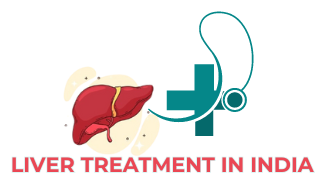Which Herbal Remedies Are Effective for Liver Health and Which Aren’t?
Overall health depends on maintaining liver health, and the potential benefits of effective herbal remedies for liver health have long been recognized. But it can be intimidating to sort through the wide range of herbal choices, especially when you take their safety and effectiveness into account. In this investigation, we explore the world of herbal medicines for liver health, examining which ones have been supported by science and which ones might not live up to expectations. Our goal is to shed light on the efficacy of different herbal medicines and provide guidance on how to incorporate them into a routine for liver health by reviewing the available research.
Herbal Remedies for Liver Health with Evidence of Effectiveness
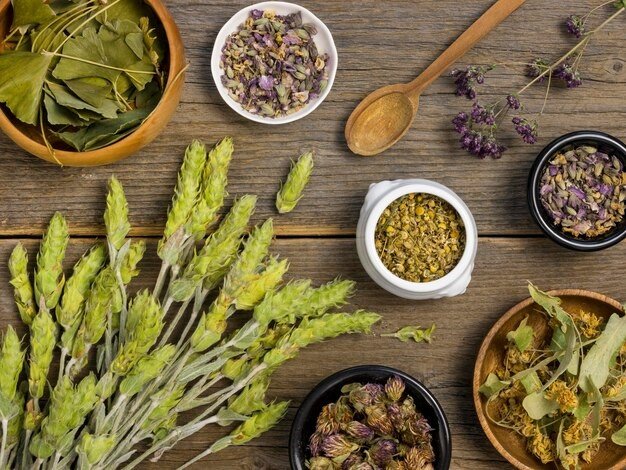
Examining the field of herbal medicines for liver health reveals a complex web of conventional knowledge and contemporary scientific research. With liver diseases becoming more and more prevalent worldwide, herbal remedies have become more and more appealing as supplements or replacements for traditional therapies. This overview examines the effective herbal remedies for liver health by looking at both modern scientific studies and empirical data from traditional traditions dating back millennia. The following explores the botanical environment, starting with milk thistle and ending with turmeric, to reveal how nature’s pharmacy can protect the liver from diseases, supported by strong efficacious evidence.
Milk Thistle (Silybum marianum)
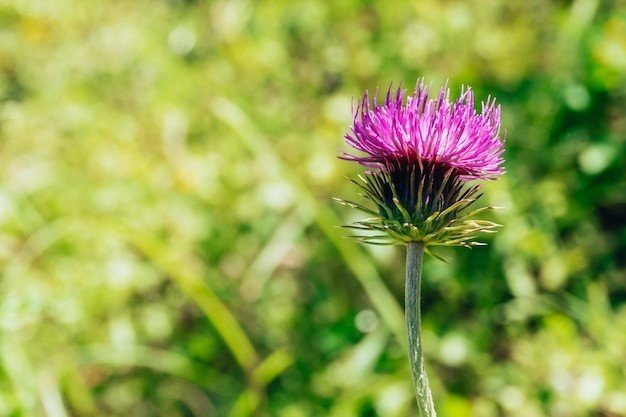
The herbaceous plant milk thistle, formally known as Silybum marianum, is well-known for its powerful therapeutic qualities, which include supporting liver function. It has been used for generations as a home cure for a variety of liver conditions, leading to the moniker “liver tonic.” Originating in the Mediterranean area, milk thistle is today grown and valued for its medicinal properties all over the world.
Milk thistle’s main active ingredient, silymarin, is a complex blend of flavonolignans with potent anti-inflammatory and antioxidant qualities. The primary ingredient thought to be in charge of the herb’s hepatoprotective properties is silymarin. It functions in the liver by scavenging free radicals, lowering oxidative stress, and blocking inflammatory pathways, protecting hepatocytes from harm and encouraging their regeneration.
Studies at the best liver transplant hospital in India have indicated that milk thistle may be useful in the treatment of cirrhosis, hepatitis, and non-alcoholic fatty liver disease (NAFLD). According to studies done by the best liver transplant clinic, silymarin may help lower liver inflammation, lower liver enzyme levels, and enhance liver function tests in people with liver disease. Furthermore, milk thistle may help prevent liver damage brought on by alcohol, pollutants, and some drugs.
Dandelion (Taraxacum officinale)

The dandelions (Taraxacum officinale), though they are sometimes written off as a bothersome nuisance, have a multitude of health benefits, especially for the liver. This hardy plant, long valued for its liver-supporting and purifying qualities, has been used for millennia in a variety of traditional remedies.
The liver is the most powerful organ in our body and is essential for metabolism, cleansing, and general health. However, the liver can get overworked in the current world of processed meals, environmental contaminants, and stress, which can result in a variety of health problems. The dandelion serves as a natural ally in this situation.
Dandelion is a powerful antioxidant, vitamin, and mineral supplement that supports liver function. Since bitter foods are known to improve digestion and support liver function, their bitter flavor is a good indicator of their liver-stimulating qualities. Dandelion helps with digestion and detoxification processes by promoting the formation of bile, which is essential for the body’s removal of waste and the breakdown of lipids.
Furthermore, substances found in dandelion root, such as chicoric acid and sesquiterpene lactones, have hepatoprotective and anti-inflammatory properties. These substances shield the liver from pollutants and free radical damage while also assisting in reducing liver inflammation. Research has demonstrated that dandelion root extract can help raise liver enzyme levels, suggesting that it may be used to treat liver diseases such hepatitis and fatty liver disease.
Turmeric (Curcuma longa)
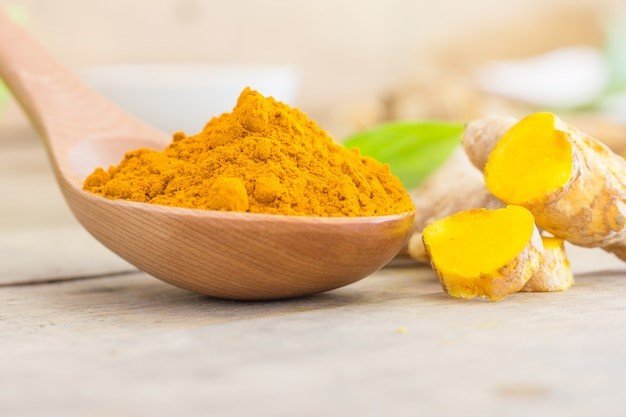
Curcuma longa, the scientific name for turmeric, has long been praised for its many health advantages, with hepatic health receiving special attention. Many of the therapeutic benefits of this vivid yellow spice, which is widely used in traditional medicine and cooking, are attributed to curcumin, a strong bioactive molecule. The liver, an essential organ involved in metabolism and detoxification, gains a great deal from turmeric’s hepatoprotective, antioxidant, and anti-inflammatory qualities.
Anti Oxidant Properties
Turmeric’s potent antioxidant activity is one of the main ways it benefits liver health. The body’s metabolic functions as well as external poisons and pollutants subject the liver to oxidative stress on a regular basis. Curcumin supports the general health and function of the liver by assisting in the neutralization of dangerous free radicals and the reduction of oxidative damage. Turmeric has the ability to reduce the risk of liver disorders such fatty liver disease and cirrhosis by shielding liver cells from oxidative stress.
Anti-Inflammatory Qualities
Turmeric also exhibits anti-inflammatory qualities that may be advantageous to liver function. Hepatitis, fibrosis, and liver cancer are among the liver illnesses that are intimately associated with chronic inflammation. Curcumin helps to relieve liver inflammation and stop it from worsening by blocking inflammatory pathways and lowering the synthesis of pro-inflammatory chemicals. Turmeric helps the liver heal and renew injured tissue by reducing the inflammatory response.
Detoxification
Additionally, turmeric helps the liver detoxify by making it easier for the body to rid itself of pollutants and waste products from metabolism. The liver is an essential component of detoxification processes because it breaks down and gets rid of dangerous compounds that could otherwise build up and cause problems. Curcumin promotes more effective toxin clearance and lessens the load on the liver by increasing the activity of detoxifying enzymes in the liver. Turmeric also promotes the formation of bile, which helps the body absorb and process lipids and other fat-soluble nutrients, thereby supporting liver function in general.
Schisandra (Schisandra chinensis)
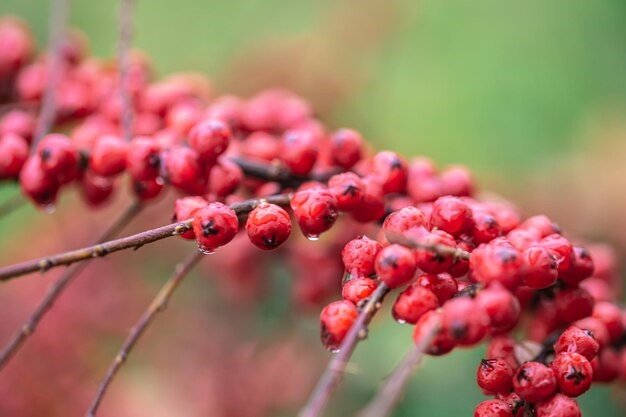
Curcuma longa, the scientific name for turmeric, has long been praised for its many health advantages, with hepatic health receiving special attention. Many of the therapeutic benefits of this vivid yellow spice, which is widely used in traditional medicine and cooking, are attributed to curcumin, a strong bioactive molecule. The liver, an essential organ involved in metabolism and detoxification, gains a great deal from turmeric’s hepatoprotective, antioxidant, and anti-inflammatory qualities.
Turmeric’s potent antioxidant activity is one of the main ways it benefits liver health. The body’s metabolic functions as well as external poisons and pollutants subject the liver to oxidative stress on a regular basis. Curcumin supports the general health and function of the liver by assisting in the neutralization of dangerous free radicals and the reduction of oxidative damage.
According to studies, schisandra possesses antioxidant and anti-inflammatory qualities that may help lessen oxidative stress and liver inflammation. Schisandra has the potential to prevent hepatitis, cirrhosis, and fatty liver disease by shielding liver cells from oxidative stress and toxic damage.
Furthermore, it has been discovered that schisandra improves liver function by encouraging the synthesis of liver enzymes necessary for metabolism and detoxification. This may enhance the liver’s capacity to effectively process and remove toxins from the body. Schisandra may also promote the normal production of bile, which facilitates the breakdown and assimilation of fats and fat-soluble vitamins.
Licorice Root (Glycyrrhiza glabra)

Glycyrrhiza glabra, the plant from which licorice root is produced, has been used for centuries in herbal, Ayurvedic, and Chinese medicine systems throughout the world. Aside from its well-known connection to candies, licorice root has a wealth of health advantages, one of which may be its capacity to support liver function.
Glycyrrhizin is one of the main active ingredients in licorice root and has strong anti-inflammatory and antioxidant qualities. These characteristics are essential for liver health since oxidative stress and inflammation are frequently linked to a variety of liver illnesses, from fatty liver to more serious ailments like hepatitis and cirrhosis. Licorice root extract helps lower inflammation, scavenge dangerous free radicals, shield liver cells from deterioration, and maintain healthy liver function.
Moreover, licorice root’s capacity to alter liver enzymes involved in detoxification procedures has been investigated. These enzymes, which include glutathione S-transferase and cytochrome P450, are essential for the liver’s ability to metabolize medications and poisons. According to studies, certain of the components in licorice root may increase the activity of these enzymes, which would help the body flush out toxins and speed up the detoxification process.
Additionally, licorice root exhibits hepatoprotective properties, which means it can protect the liver from a range of poisons and assaults. According to research, licorice root extract may lessen liver damage brought on by drinking alcohol, being around pollutants, and taking some drugs. For those who are at danger of or already have liver damage, its capacity to stimulate the regeneration of liver cells and prevent fibrosis—the excessive buildup of scar tissue in the liver—is very encouraging.
Herbal Remedies with Limited or Inconclusive Evidence

Investigating the world of herbal treatments frequently reveals a complex scene where conventional knowledge and cutting-edge science collide. In this field, there is a mist of little to no evidence supporting the safe and effective herbal remedies for liver health. The subtleties of holistic cures are becoming increasingly important to comprehend as society moves toward more holistic healthcare alternatives. The following attempts to navigate the nexus between custom, anecdotal evidence, and scientific investigation in order to clarify the complexity of Ineffective herbal remedies for liver health with scant or conflicting evidence.
Artichoke
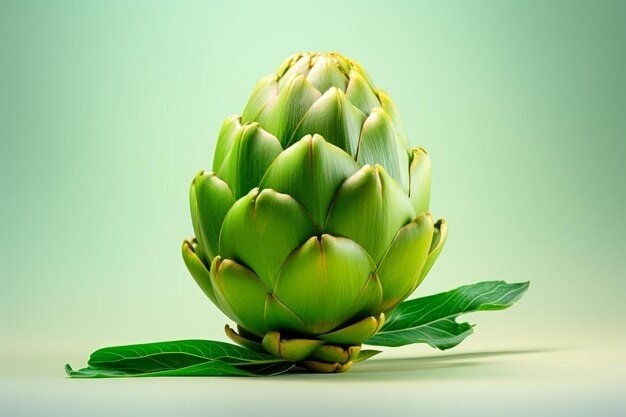
Loved for its culinary qualities as well as its potential as a herbal treatment, artichokes have drawn interest due to its possible health advantages. Although there is limited and inconsistent scientific data supporting the claims made by traditional medicine on the benefits of artichoke extract for liver health and digestion, this is nevertheless the case. Although it has long been used in folk medicine, there are few thorough research evaluating the effective herbal remedies for liver health, which leaves a gap in our knowledge of its actual therapeutic potential.
Artichokes, which are high in fiber and antioxidants, have been praised for their capacity to enhance general health. Clinical investigations examining its alleged advantages, such as liver support and cholesterol reduction, have shown contradictory results, nevertheless. Some studies indicate a beneficial effect, but others do not show any discernible effects, which emphasizes the need for more investigation to clarify its modes of action and potential therapeutic uses.
The uncertainty around the effectiveness of artichokes highlights the significance of evidence-based treatment in herbal medicine, particularly as interest in natural medicines continues to grow. Although anecdotal evidence and historical use may provide light on its possible advantages, comprehensive scientific research is necessary to confirm its ability to successfully promote health and treat illnesses.
Boldo (Peumus boldus)

The little, native Chilean evergreen tree known as “boldo” (Peumus boldus) is used in traditional medicine. Boldine, a substance thought to offer potential medical benefits, is found in its leaves. However, there is scant and conflicting data to support boldo’s effectiveness as a herbal medicine.
Boldo has been used in traditional medicine to treat a number of conditions, including gallstones, constipation, and digestive disorders. Boldo’s supporters claim that in addition to its anti-inflammatory and antioxidant qualities, boldo may also be helpful in the treatment of specific medical disorders.
Boldo has been used in traditional medicine for a very long time, however there is little and even conflicting scientific evidence regarding its efficacy. Boldo may have modest effects on digestive health, according to some studies, but other research fails to show any appreciable advantages. Moreover, there is not enough data to substantiate the safety and effectiveness of boldo when used consistently.
Black Seed (Nigella sativa)
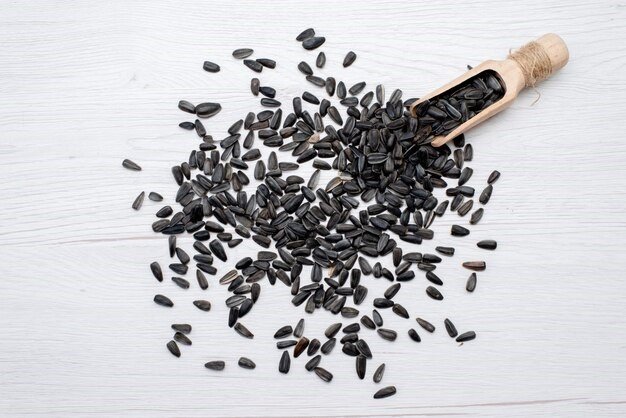
Nigella sativa, the scientific name for black seed, has a long history of use as a medicinal herb. Black seeds are widely utilized in traditional medicine, especially in South Asia and the Middle East, and they have drawn interest due to their health advantages. But the image is a little hazy when it comes to the scientific data proving its effectiveness.
Supporters of black seed claim that it can help with everything from high blood pressure to asthma, however the evidence for these claims is scant and frequently contradictory. While certain research indicates that black seed could have anti-inflammatory, antioxidant, and antibacterial qualities, the data is insufficient to make firm judgments regarding its medicinal benefits.
The possible health benefits of black seed are still being investigated despite the lack of convincing proof. To learn more about its methods of action and possible uses in treating a range of medical disorders, researchers are working on current investigations.
Chanca Piedra (Phyllanthus niruri)
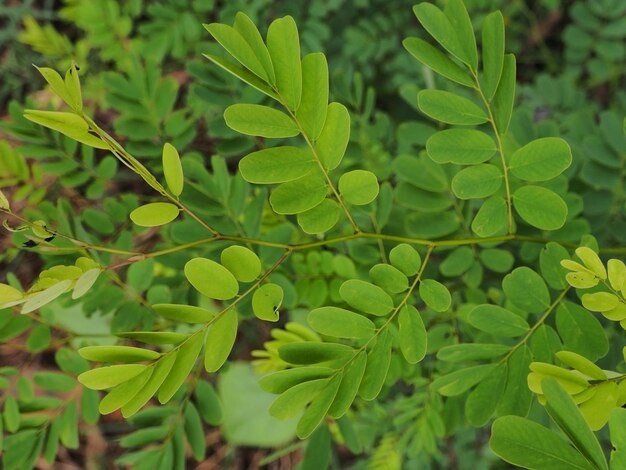
Phyllanthus niruri, or chanca piedra, is a herb that has long been used in Ayurvedic and traditional medicine systems to treat a variety of diseases, most commonly liver and kidney stones. Although it has been used for a long time, there is still little and conflicting scientific data to support its effectiveness.
Studies examining Chanca Piedra’s impact on kidney stones have yielded inconsistent findings. Some studies have found no discernible effects when compared to a placebo, while others have suggested potential benefits in preventing stone development or in reducing the size of stones.
Likewise, there is conflicting evidence about its effects on liver health. According to certain research, it may have hepatoprotective qualities that could help shield the liver from harm from illnesses or poisons. To validate these results, though, larger, more thorough clinical trials are required.
Potential Risks and Side Effects of Herbal Remedies on Liver Health
The use of herbal treatments as natural solutions for a range of illnesses, including liver health, has grown in popularity. Even though these treatments are frequently seen to be safe, it’s important to be aware of any possible risks and side effects of herbal remedies, especially as they relate to liver function. Notwithstanding their natural sources, certain herbs have bioactive components that may interact with liver enzymes and have negative effects ranging from moderate gastrointestinal distress to serious hepatotoxicity. Making educated decisions and recommendations for using herbal remedies safely requires knowledge of the possible threats to liver health.
Drug Interactions
- Prescription drugs and herbal treatments may interact, impacting liver function.
- Certain plants, such as ephedra, kava, and comfrey, have been connected to liver damage.
- Herbal supplements that are not standardized or regulated may have unpredictably negative effects on the liver.
- Certain herbs can change how medications are metabolized by either inducing or inhibiting liver enzymes.
- The liver is harmed by impurities or adulterants found in herbal treatments.
- One of the recommendations for using herbal remedies safely is when taking herbal medicines, people with pre-existing liver issues should use caution.
- The cumulative effects of combining various herbal treatments can raise the risks and side effects of herbal remedies for liver damage.
Quality Control Issues
- Herbal treatments may vary in composition and strength due to a lack of standardization.
- Due to insufficient quality control procedures, contamination with heavy metals, pesticides, or other contaminants pose risks and side effects of herbal remedies.
- Certain plants include substances that, in high amounts or with continuous usage, may be hepatotoxic, or detrimental to the liver.
- Drugs and herbal remedies may interact, especially if the herbal remedies alter liver enzymes that are involved in drug metabolism.
- The effects to liver health from mislabeling or adulteration with medications are unknown.
- A lack of adequate regulation could lead to the availability of herbal products whose safety profiles are unknown.
- People who already have liver disease are more likely to have negative consequences from herbal medicines.
Allergic Reactions
- The health of the liver may be impacted by minor to severe allergic reactions to herbal treatments.
- Certain Ineffective herbal remedies for liver health may cause unpleasant effects in certain individuals due to unknown sensitivities.
- Allergic reactions can cause rashes on the skin, itching, swelling, or even anaphylaxis, which can indirectly affect liver function.
- Certain herbs may include substances that cause allergies in people who are sensitive to them, or they may contain allergens.
- Allergy-induced inflammation of the liver has the potential to cause damage to the liver or worsen pre-existing liver disorders.
- When utilizing herbal treatments, one of the recommendations for using herbal remedies safely is important to keep an eye out for any indications of allergic reactions and to see a liver treatment doctor if any unfavorable symptoms appear.
- Before using herbal medicines, people with known allergies or sensitivities should take extreme caution and thoroughly investigate the components.
Hepatotoxicity
- Although they are sometimes thought of as natural and healthy, herbal medicines can be harmful to the liver.
- One possible adverse effect associated with the use of several Ineffective herbal remedies for liver health is toxic hepatitis.
- The active ingredients in herbs have the potential to negatively impact the liver, causing inflammation and damage.
- Common herbs that are linked to toxic hepatitis are green tea extract, black cohosh, and kava.
- The risk of negative consequences is increased in the herbal supplement sector by a lack of regulation and standardization.
- Toxic hepatitis can cause nausea, vomiting, jaundice, and stomach pain.
- People who take drugs that the liver metabolizes or have liver diseases already are more vulnerable.
Discuss Herbal Supplements with a Healthcare Professional
Tailored Advice
Seeking advice from a liver expert doctor is one of the essential recommendations for using herbal remedies safely for liver health. Although dandelion root and milk thistle are frequently linked to liver support, each person’s experience with these safe and effective herbal remedies for liver health may differ greatly. A medical expert can offer tailored advice based on your medical background, the drugs you’re taking, and your particular requirements for liver health
Holistic Advise
Herbal supplements are only one part of the complex equation for preserving liver function. A medical expert can provide holistic advise that includes herbal supplements along with food suggestions, lifestyle modifications, and possible conventional therapies. By addressing every facet of liver health, this all-encompassing strategy promotes the liver’s ideal function and wellbeing.
Prevent Possible Harm
Healthcare practitioners can also assist in navigating the possible hazards and interactions related to herbal supplements. It is important to seek professional counsel at the best liver transplant clinic as several herbs have the potential to aggravate underlying health concerns or interact with drugs. You can prioritize the health of your liver and your general well-being by talking with a liver expert doctor about herbal supplements.
Although using herbal medicines to improve liver health has potential, caution and awareness are necessary when using them. Certain herbs, such as turmeric and milk thistle, have been found to provide potential health advantages; however, other herbs are either unproven or even dangerous. Thus, it’s imperative that you speak with liver treatment doctors before adding herbal medicines to your program for liver health. Visit Liver Treatment India, devoted to offering thorough resources and professional insights catered to your specific needs, for trustworthy information and direction on best liver transplant hospital in India, effective liver health treatments, including herbal remedies. With reliable advice from Liver Treatment India, make the right health choices and take holistic care of your liver.
